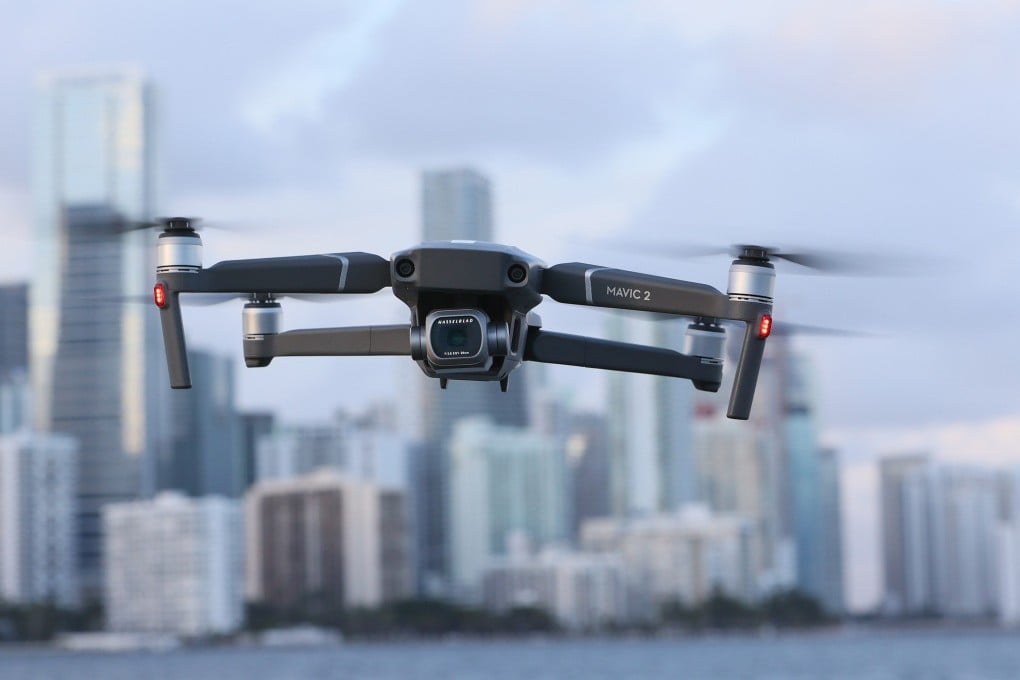Warnings about DJI drones over spying expand US-China tech war beyond tech giants Huawei, Tencent and ByteDance
- Politicians and industry experts warn that accumulated data collected from DJI drones could be valuable to Chinese intelligence
- The Shenzhen-based firm has become the world’s largest drone maker, leaving consumers few other affordable options if its products disappear from shelves

In video reviews of the latest drone models to his 80,000 YouTube subscribers, Indiana college student Carson Miller doesn’t seem like an unwitting tool of Chinese spies.
“If tomorrow DJI were completely banned,” the 21-year-old said, “I would be pretty frightened.”
Critics of DJI warn the drone maker may be channelling reams of sensitive data to Chinese intelligence agencies on everything from critical infrastructure like bridges and dams to personal information such as heart rates and facial recognition. But to Miller, consumers face plenty of bigger threats to the privacy of their data. “There are apps that track you on your smartphone 24/7,” he said.
That attitude is a problem for American officials who are seeking to end DJI’s dominance in the US On Thursday, the Biden administration blocked American investment in the company, a year after President Donald Trump prohibited it from sourcing US parts. Now, lawmakers from both parties are weighing a bill that would ban federal purchases of DJI drones, while a member of the Federal Communications Commission wants its products taken off the market in the US altogether.
In many ways, DJI has become the poster child of a much wider national security threat: The Chinese government’s ability to obtain sensitive data on millions of Americans. In recent weeks, former top officials in both the Obama and Trump administrations have warned that Beijing could be scooping up personal information on the citizens of rival nations, while walling off data on China’s 1.4 billion people.
“Each new piece of information, by itself, is relatively unimportant,” Oona Hathaway, a professor at Yale Law School who served in the Pentagon under President Barack Obama, wrote in Foreign Affairs, referring to surveillance and monitoring technologies. “But combined, the pieces can give foreign adversaries unprecedented insight into the personal lives of most Americans.”
Chinese President Xi Jinping has been far ahead of the West in realising the importance of data in gaining both an economic and military advantage, according to Matt Pottinger, a former deputy national security adviser in the Trump Administration. “If Washington and its allies don’t organise a strong response, Mr. Xi will succeed in commanding the heights of future global power,” he wrote in a co-authored New York Times op-ed last month.